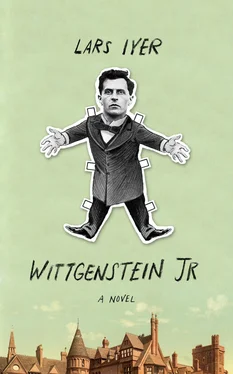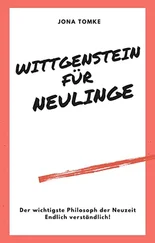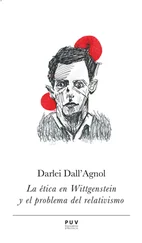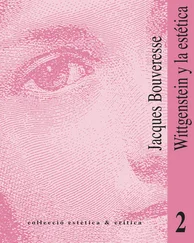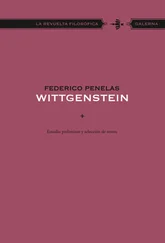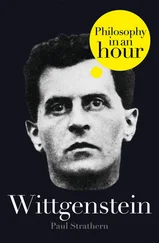Later, in his rooms.
He goes straight to work.
I fall asleep on the sofa. He lays a blanket over me.
21st December
Wittgenstein, vexed at what he called my superficial conversation with the porter in the lodge.
WITTGENSTEIN: You must be careful, Peters. You are corruptible. You have not fought for your innocence. That is clear.
ME: I was only joking with him!
WITTGENSTEIN: You are becoming thoughtless and stupid.
I tell him I’m sorry.
WITTGENSTEIN: But you have no understanding of what you should be sorry for .
Wittgenstein stops, and holds his left wrist in his right hand.
His heart beats too fast, he says.
I take his wrist in my hand.
He pulls it away.
He is becoming anxious — terribly anxious, he says.
WITTGENSTEIN: Perhaps it would be better if you and I didn’t see one another.
My tears.
I remind him of what he said: that it was only by weeping that you can drive the splinter of philosophy from your heart.
WITTGENSTEIN: But the splinter of philosophy lies in my heart, not yours.
22nd December
Town. We walk among the shoppers in the pre-Christmas sales.
He points out the street corner the street-cleaning machines always miss.
Litter. Torn things. Dirtied things. Bits of plastic and metal and paper. Rubbish slowly turning into pulp.
The world is mired in filth, he says. It is drowning in filth.
Even Cambridge, he says. Especially Cambridge.
He’s becoming wicked, he says. He’s treated me cruelly, he knows it.
He’s reached a decision, he says. He plans to resign. To leave Cambridge.
I nod my head mutely.
WITTGENSTEIN: I’m sorry. I know you won’t understand.
I tell him I do understand. That I understand everything . The dons … The university … They don’t appreciate him.
WITTGENSTEIN: It is more than that.
I tell him that we students never took him seriously enough.
WITTGENSTEIN (quoting): Above all else, guard your heart .
ME: I thought you said I would save you. That I was close to God.
WITTGENSTEIN: The closer one comes to God, the more one sees oneself as a sinner . (A pause.) Do you know what sin is, Peters?
ME: I don’t believe in sin.
WITTGENSTEIN: Then you understand nothing.
23rd December
The Palm House, at the Botanic Gardens. Orchids and passionflowers in the canopy above us.
He recounts a dream. Of the Arctic expanse. Of the aurora borealis flashing in the sky. Of a palace of ice, and of his brother in the great hall among narwhal horns and white furs and amber — his blue-lipped brother, playing with shards of ice, rearranging them, moving them around …
In his dream, he has gone to rescue his brother. But his brother is lost in his ice puzzle, and does not know him. His brother does not even know his own past — the attic room; the house, with its piano and its basement study; the pathless woods outside …
And then, in his dream, he is heading south. Over the tundra, over the snowfields and the sheet-ice. Through the frozen air.
The first trees — stunted larches. Then pine trees, a few at first. Then forest, dark with conifers.
Then the first road. The first hamlets. The first patches of brown earth.
South, towards home. South, his brother’s step inside his own. His brother’s life inside his own. South, to where the mountains rise and the valleys deepen. South, to their attic room in their childhood home.
• • •
The Oceanic Islands display. Lavender and giant daisies.
WITTGENSTEIN: I’m leaving tomorrow. In the morning.
ME (stupidly): But you’ll have to pack.
WITTGENSTEIN: They will pack for me. They will send on my things.
ME: Where are you going?
He shakes his head.
ME: You’re not even going to tell me where you’re going?
He shakes his head again.
ME: Will you take me with you?
A final no .
I tell him I don’t want to be alone in Cambridge. I tell him I’m afraid.
He tells me I should think about God very, very hard. He smiles.
ME: Will you come back for me?
I tell him I want to see him driving up to my rooms in a white limo with a bunch of roses, waving at me through the open sunroof. I tell him I want him to clamber up my fire escape and gather me up and kiss me. What did the student do when his teacher came to rescue him? , he’ll say. He rescued him right back , I’ll say.
Night. His rooms.
His mother used to lead a quintet who performed a Christmas concert every year in the Stadtcasino in Basel, he says. He and his brother used to love watching them play. Their give-and-take. Their musical courtesy . Their musical friendship .
There was a sense of imminence in their playing, he says. Of urgency , quite detached from concerto-thrills. It was about the present. About the moment , thick with promise. You felt that the world was about to change completely …
It frightened him back then, he says: the thought that the world could change completely. But now?
After philosophy , the revelation will be continuous, he says. Theophany will be continuous. Every moment will be full to bursting.
After philosophy , every moment will be a Sabbath, and time will be a movement only from Sabbath to Sabbath.
After philosophy , we will know things as they are, he says. We will be as we are.
After philosophy , everything we say will be true.
Night. We lie together.
We lie together.
We lie together.
Late. Snow-light outside.
Noise from the courtyard. Voices shouting.
Is it Guthrie? he says.
Guthrie’s gone home, I tell him.
WITTGENSTEIN: You must go home. Tomorrow, when I leave, go home, Peters. Get the train north.
We must all go home, he says. Everyone must go home …
Philosophy is really homesickness , he quotes. The desire to be at home everywhere .
• • •
The early hours. He wakes up shaking.
WITTGENSTEIN: Oh God, it’s here. Madness is here.
His fear that his mind will burst. His hope that his mind will burst.
To undo his mind. To release it.
What will he become, when he welcomes madness? When he affirms madness?
What will he become, when he falls into his madness? When madness falls through him ?
He knows he is going mad, he says. He knows that these are the last days of his sanity.
He does not want to be alone at the end. He knows he will be alone at the end.
He’s afraid of madness, he says. That madness it will leave something of him left.
He’s afraid that madness will not obliterate him .
Dawn.
Still shaking.
His confession . He speaks of his life. Of what he has been. Of what he has done .
He speaks of his sins. Of the past. He speaks of all those who have been lost.
He says that he, too, will soon be lost.
WITTGENSTEIN: Remember me, Peters.
• • •
After philosophy , every moment of the past will be remembered, he says. Nothing will be lost.
After philosophy , the past will be reparable, he says. Reversible.
After philosophy , death will be transformed into life, he says. Sorrow will be transformed into joy.
After philosophy , the dead will awaken. The dead will be reborn. His brother, his mother, his father: they will be reborn.
After philosophy , we will weep without cease. We will laugh without cease.
After philosophy , the world will open as his homeland. As our homeland.
Читать дальше
